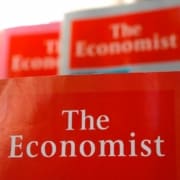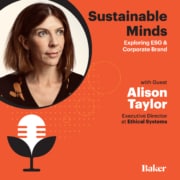Uber Becomes an Unlikely Icon in the Rise of ESG in Corporate Governance

Wrestling with the concept of better corporate governance in a world where the appeal of a gig economy has become easily acceptable was always going to be a challenge. But who would have thought that Uber, the new-look cheaper taxi service which describes itself as “a global platform with the technology” to help people move ahead, would become an icon of sorts in the struggle to add “human” to the concept of a “gig economy”?
Uber, founded in San Francisco in 2009 and gaining in popularity by 2015, lost its licence to operate in London in the United Kingdom in 2017. Confirming that it planned to appeal against the decision, the company said the ruling had showed the world that “far from being open, London is closed to innovative companies.”
The three letters in ESG are inextricably linked by human values.
In September 2020, it was spared on an appeal “despite historic failings” and deemed “a fit and proper operator” after some improvements in its practices. By then, it had already become a necessity of life for many Londoners—and an essential means of income for drivers looking for flexible working. But by then it had also already—in 2016—been taken to an employment tribunal by former drivers James Farrar and Yaseen Aslam, arguing they worked for Uber whereas the company claimed its drivers were self-employed and it therefore was not responsible for paying any minimum wage, or holiday pay.
The U.K Supreme Court’s ruling that Uber drivers are workers, rather than self-employed, is a judgement set to cause ripples for all companies with new business models that provide a seemingly easy fix for the needs of our increasingly frenetic daily lives, but play havoc with the values that underpin the thinking of standards on better corporate governance.
Lord Legatt’s delivery of the unanimous judgement for the Supreme Court stated that drivers should be considered to be working not only when driving a passenger, but whenever they were logged in to the app. In other words, it valued their time equally whether they were driving or just “on duty.” By contrast, they were subject to set fares, set contract terms and penalties set by Uber on rejecting too many rides. The relationship was skewed heavily in favor of Uber by virtue of its construct, with the company taking full advantage. The court decided the drivers were in a position of subordination, as they could only increase their earnings by working longer hours.
At the heart of that business model, like many thrown up by the gig economy, is fundamentally unequal value of human capital. Businesses speak loudly about “valuing their people” and they get away with it by focusing on the perks they provide. Uber, in its defense, declared it had provided “new protections like free insurance in case of sickness or injury.”
At the core of every business model should lie the relationship between the worker and the firm, from equality and fairness in recruitment to equal treatment, with commitment on communication and engagement, development potential, and reward. It mirrors the broader relationship between business and society, and contributes to the creation of that society. Uber side-stepped any expectation of corporate responsibility by declaring its workers to be self-employed.
Subscribe to the Ethical Systems newsletter
Aslam has said, “It has taken us six years to establish what we should have got in 2015. Someone, somewhere, in the government or the regulator, massively let down these workers.” This ruling has come soon after concern about the U.K government’s position on workers’ rights post-Brexit.
Uber has also attracted class action lawsuits for a “racially-biased ratings system that hurts non-white drivers” and these criticisms have been there all along its journey. As Aslam suggests, this example of the workings of an everyday gig economy name has massively let a lot of people down. At what point is the U.K. commitment to having a world renowned corporate-governance code and its regulation going to catch up with the growing realities of working life in 2021, particularly for a younger generation whose prospects have been flattened by this pandemic?
Uber’s defeat in the U.K Supreme Court should serve as a reminder that, post-pandemic, our business concerns should be all about ESG—the environmental, social, and governance issues that swirl around the makings of our future. We have already acknowledged in the U.K that it is not just listed businesses that are expected to behave according to a Code. This blog has focused on ESG many times, including recently, here.
In the run up to COP26, the Environment and the urgent need for climate action is bringing the E in ESG to the forefront of global attention. Climate is giving the Governance component a boost, with growing demands that companies speak truth on their business plans and strategy going forward to all stakeholders. But the Societal concerns represented by the S in ESG are critical, and they are not only about monitoring far-away supply chains and nodding to efforts at diversity and inclusion. The three letters in ESG are inextricably linked by human values.
That essence of interlinking is, in fact, clear in the U.K Supreme Court ruling. As Farrar pointed out after it: “This is a win-win-win for drivers, passengers, and cities. It means Uber now has the correct economic incentives not to oversupply the market with too many vehicles and too many drivers. The upshot of that oversupply has been poverty, pollution and congestion.”
It suggests a need to think more holistically on governance and regulation. The law is increasingly being used to get justice long after the damage done, which suggests there are holes in the values-governance-regulation-enforcement net.
Dina Medland, her co-author is a long-time journalist and independent commentator with a mission to provoke thought around responsible capitalism in changing times. She writes about the need for better corporate governance and a return to the value of an ethical focus for better, sustainable businesses on dinamedland.me. Follow her on Twitter @dinamedland.
Lead image: Barna Bartis via Unsplash
This piece was originally published on Board Talk and is reprinted with permission.








